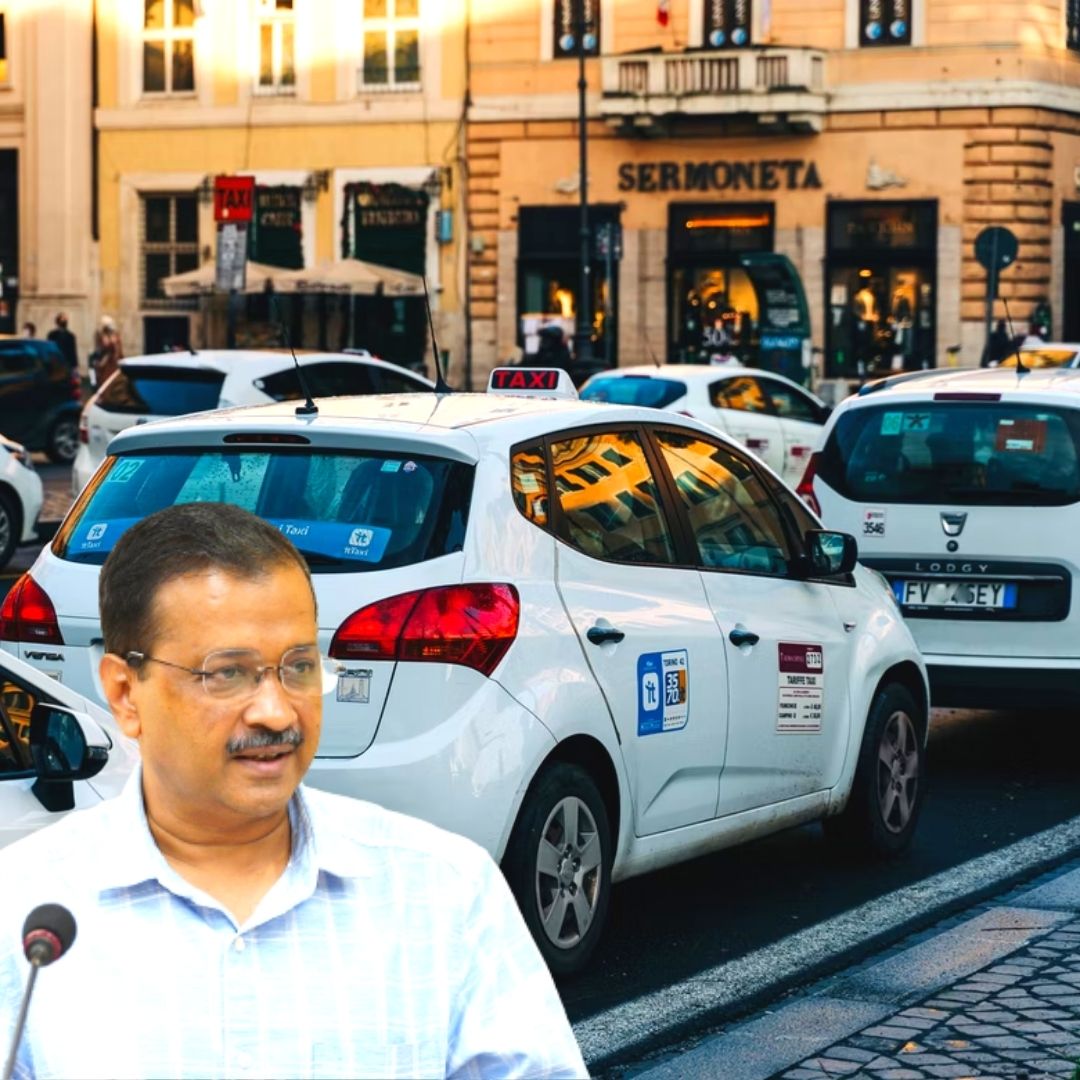
Image Credit- Unsplash (Representational), Facebook/ Arvind Kejriwal
Delhi Government Issues Delhi Motor Vehicle Aggregator Scheme: Here's All You Need To Know
Writer: Tanmay Channa
I am currently pursuing BSc.Economics from NMIMS University, Mumbai. I have a deep interest for research and journalism.
Delhi, 6 July 2022 1:06 PM GMT
Editor : Shiva Chaudhary |
A post-graduate in Journalism and Mass Communication with relevant skills, specialising in content editing & writing. I believe in the precise dissemination of information based on facts to the public.
Creatives : Shiva Chaudhary
A post-graduate in Journalism and Mass Communication with relevant skills, specialising in content editing & writing. I believe in the precise dissemination of information based on facts to the public.
The aggregators will have to pay a monetary fine of ₹ 50,000 per vehicle if they are found operating conventional vehicles in the NCT of Delhi post-April 1, 2030.
The Delhi government, on July 5, issued the latest Delhi Motor Vehicle Aggregator Scheme for licensing and regulation of aggregators that provide passenger transport services and for the regulation of other delivery aggregators that offer delivery services of goods and commodities.
The policy mandates the adaptation of an all-electric fleet for cab companies, food delivery and e-commerce businesses by April 1, 2030. It also proposes a fine of ₹50,000 per vehicle if a company fails to comply.
The scheme applies to all aggregators whose fleet comprises at least 25 motor vehicles and the vehicles that the aggregator integrates. It does not apply to buses but only to aggregators onboard with 2-W, 3-W, and 4-W motor vehicles.
Fleet Conversion Targets
The policy has laid down fleet conversion targets. It says that 10 per cent of the new three-wheelers onboarded by cab aggregators should be electric vehicles within six months of the notification of the policy and 100 per cent within four years of the draft notification.
For four-wheelers, it would be 5 per cent within six months, which would be increased to 15 per cent within nine months, 25 per cent by the end of one year, 50 per cent by the end of two years, 75 per cent by three years and 100 per cent by four years. By April 1, 2030, the entire fleet should comprise electric vehicles, as reported by NDTV.
Mandates Action Against Errant Drivers
The scheme says that the aggregator should strictly deal with the drivers who have 15 per cent or more grievances for the rides undertaken in one month and that appropriate action should be taken against them. It goes on to say that the aggregators should store the data related to such drivers for three months from the date of service provided.
The aggregators should undertake remedial training and corrective measures for drivers with a rating of less than 3.5 over one year.
"The Aggregator should provide quarterly reports on driver ratings and grievances received against the drivers to the Transport Department, GNCTD. It added that all records with regards to driver rating and grievance registered shall be available for inspection by the Transport Department/authorised officials of GNCTD," the scheme said.
Establishment Of Operating Centre
An Operating Centre or Command and Control Centre (CCC) or Information Centre should be set up by the aggregators involved in passenger transport and be functional 24X7. The centre should be able to monitor the movements of all the drivers and their vehicles at any given time. It should have access to all the data related to the origin-destination of any trip offered through the app, the panic button status, and the trip route.
It should also be able to provide all the data related to complaints lodged by the riders and the action taken to remedy the same to the Transport Department through portal access.
Key Takeaways
The policy states that the appropriate functioning of GPS should be ensured by aggregators who provide on-demand service for passenger transportation.
A mechanism should be there in the app to make sure that the identity of the driver undertaking a trip is the same as the one registered with the aggregator. This could be done through verification from the rider before the commencement of each trip. The aggregator would be required to update the details of vehicles and drivers integrated with them on a web-based portal provided by the Transport Department.
It says aggregators would be allowed to charge a fare with maximum surge pricing but should not exceed twice the base fare specified by the Transport Department, as reported by The Indian Express.
Call centres with valid telephone numbers shall be established, and operational email addresses should be displayed clearly on the app with 24x7 operations by the aggregator, wherein assistance is provided in English and Hindi.
Penalty On Not Compliance
The scheme adds that if the aggregators fail to comply with the fleet conversion targets, they will not be permitted to register any new boarded vehicle unless they meet the minimum fleet requirement. The aggregators will have to pay a monetary fine of ₹ 50,000 per vehicle if they are found operating conventional vehicles in the NCT of Delhi post-April 1, 2030, as reported by News 18.
The draft policy was uploaded on the Transport Department's website. The government has launched a portal to invite feedback.
 All section
All section













